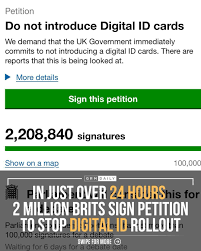The Rise of Digital ID Cards by Governments Worldwide

Introduction to Digital ID Cards
In an increasingly digital world, governments across the globe are adopting digital ID cards as a modern solution to enhance security and streamline identification processes. These innovations are vital, especially in light of the ongoing push for digital transformation across various sectors. Digital ID cards provide a convenient, secure method for citizens to authenticate their identity while accessing government services and participating in digital transactions.
Global Trends in Digital ID Implementation
As of 2023, several countries have initiated or expanded programmes for digital ID cards. The Scandinavian nation of Estonia is often cited as a pioneer, having introduced a comprehensive digital ID system back in 2002. This system allows citizens to access a wide array of services online, from voting to banking, deploying advanced encryption to protect personal data.
More recently, in 2021, India bolstered its digital identification system, Aadhaar, now numbering over 1.3 billion registrations. This platform has come under scrutiny, yet it showcases the potential of digital IDs to facilitate efficient service delivery, especially during the COVID-19 pandemic.
In the United Kingdom, the government has been deliberating on the introduction of a national digital ID system to improve identity verification for online services. The proposal aims to combine biometric data with secure access measures, relieving citizens from the complexities of multiple identification forms.
Benefits and Challenges of Digital ID Cards
Digital ID cards offer numerous advantages, such as increased security, reduced fraud, and enhanced user convenience. They can streamline processes in which physical identification tends to slow down service delivery, such as signing agreements or verifying identities at airports.
However, there are several challenges that governments face when adopting digital ID systems. Concerns about privacy and data security are paramount, as citizens express valid apprehensions regarding the potential misuse of their personal information. Moreover, ensuring accessibility for all citizens, particularly in regions with limited internet connectivity or digital literacy, remains a significant hurdle.
Conclusion and Future Outlook
The adoption of digital ID cards by governments signifies a transformative shift towards greater efficiency and security in the digital landscape. As more nations explore and implement these systems, ongoing dialogue surrounding privacy, security, and accessibility will be crucial to their success. Looking forward, the establishment of robust frameworks that safeguard citizens’ data while providing seamless access to services can set a precedent for future technological advancements in public administration.









